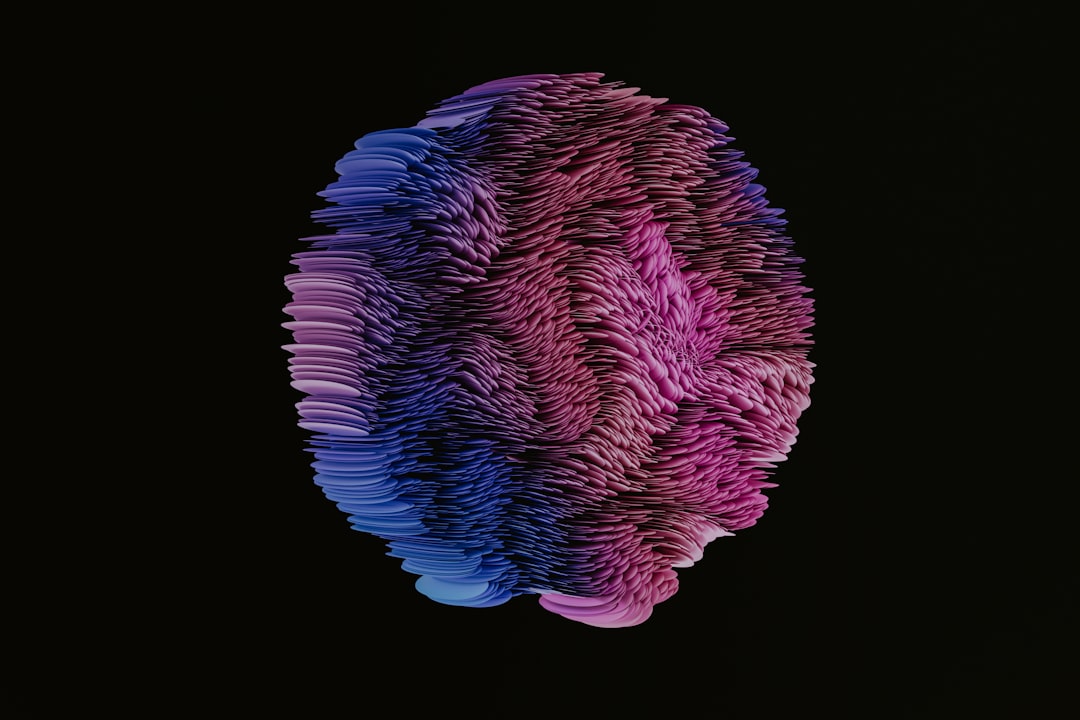Consciousness research is a fascinating and complex field that delves into one of the most profound aspects of human existence: the nature of awareness itself. As you embark on this exploration, you will find that consciousness is not merely a passive state of being; it is an active, dynamic process that shapes your perceptions, thoughts, and experiences. The study of consciousness encompasses a wide range of disciplines, including psychology, neuroscience, philosophy, and even physics.
Each of these fields contributes unique insights into what it means to be conscious and how this awareness influences your life. As you delve deeper into consciousness research, you will encounter various questions that challenge your understanding of reality. What is the essence of consciousness?
How does it arise from the physical processes of the brain? Can consciousness exist independently of the body? These inquiries not only stimulate intellectual curiosity but also have profound implications for how you perceive yourself and your place in the universe.
By examining the multifaceted nature of consciousness, you can gain a richer understanding of your own experiences and the world around you.
Key Takeaways
- Consciousness research integrates neuroscience, philosophy, and quantum physics to explore human experience.
- Historical and modern methods provide diverse approaches to studying consciousness and altered states.
- Neuroscience plays a crucial role in mapping brain activity related to conscious awareness.
- Philosophical debates continue to shape understanding of the mind-consciousness relationship.
- Advances in consciousness research have significant implications for medicine, psychology, and future scientific exploration.
The History of Consciousness Studies
The history of consciousness studies is a tapestry woven from the threads of philosophy, science, and spirituality. You may find it intriguing to trace the evolution of thought surrounding consciousness from ancient civilizations to modern times. Early philosophers like Plato and Aristotle pondered the nature of the mind and its relationship to the body, laying the groundwork for future inquiries.
Their musings on the soul and its connection to consciousness set the stage for centuries of debate and exploration. As you move through history, you will notice significant shifts in how consciousness has been understood. The Enlightenment brought about a more empirical approach, with thinkers like Descartes famously declaring, “I think, therefore I am.” This assertion highlighted the importance of self-awareness in defining existence.
In the 19th century, figures such as William James began to explore consciousness through a psychological lens, emphasizing its fluid and ever-changing nature. This historical context enriches your understanding of contemporary consciousness studies, revealing how past ideas continue to influence current research.
The Science of Consciousness: Methods and Approaches

In your journey through consciousness research, you will encounter a variety of scientific methods and approaches aimed at unraveling the mysteries of awareness. One prominent method is neuroimaging, which allows researchers to visualize brain activity in real-time. Techniques such as functional magnetic resonance imaging (fMRI) and electroencephalography (EEG) provide valuable insights into how different brain regions contribute to conscious experience.
By examining patterns of neural activity, scientists can begin to map the intricate relationship between brain function and conscious awareness. Another approach involves behavioral studies that assess how consciousness influences decision-making and perception. You may find it fascinating that researchers often use tasks designed to manipulate attention or awareness to observe how these factors affect cognitive processes.
For instance, experiments involving subliminal messaging reveal how unconscious stimuli can shape your thoughts and actions without your explicit awareness. These diverse methodologies highlight the interdisciplinary nature of consciousness research, as scientists from various fields collaborate to deepen your understanding of this enigmatic phenomenon.
The Role of Neuroscience in Understanding Consciousness
| Metric | Description | Example/Value | Relevance to Consciousness |
|---|---|---|---|
| Neural Correlates of Consciousness (NCC) | Brain regions and neural activities directly associated with conscious experience | Prefrontal cortex, thalamus, posterior cortex | Identifies specific brain areas involved in conscious awareness |
| Electroencephalography (EEG) Frequency Bands | Brainwave patterns measured by EEG linked to different states of consciousness | Alpha (8-12 Hz), Beta (13-30 Hz), Gamma (30-100 Hz) | Helps differentiate between wakefulness, sleep, and altered states |
| Functional Magnetic Resonance Imaging (fMRI) Activation | Measures brain activity by detecting changes in blood flow | Increased activity in default mode network during self-referential thought | Maps brain networks involved in conscious processing |
| Integrated Information Theory (Φ) | Quantitative measure of the degree of integrated information in a system | Φ values range from 0 (no consciousness) to high values (high consciousness) | Provides a theoretical framework to quantify consciousness |
| Consciousness Level Scales | Clinical scales to assess consciousness in patients | Glasgow Coma Scale (3-15), Coma Recovery Scale-Revised | Used to evaluate consciousness in brain injury and disorders |
| Neurotransmitter Activity | Levels of chemicals like dopamine, serotonin affecting conscious states | Increased dopamine linked to alertness and attention | Influences mood, perception, and awareness |
Neuroscience plays a pivotal role in advancing your understanding of consciousness by investigating the biological underpinnings of awareness. As you explore this field, you will discover that neuroscientists seek to identify specific neural correlates associated with conscious experience. This pursuit involves examining how different brain structures and networks contribute to various aspects of awareness, such as perception, attention, and self-reflection.
One compelling area of research focuses on the default mode network (DMN), a network of brain regions that becomes active when you are at rest or engaged in introspective thought. Understanding how the DMN operates can shed light on the nature of self-awareness and the continuity of conscious experience over time. Additionally, studies involving patients with brain injuries or disorders provide valuable insights into how disruptions in neural function can alter consciousness.
By investigating these connections between brain activity and conscious experience, neuroscience offers a powerful lens through which you can explore the complexities of awareness.
Exploring Altered States of Consciousness
Altered states of consciousness present a captivating area for exploration within consciousness research. You may find it intriguing to consider how various experiences—such as dreaming, meditation, or psychedelic experiences—can profoundly shift your perception of reality. These altered states challenge conventional notions of consciousness and invite you to question the boundaries of awareness.
In recent years, there has been a resurgence of interest in psychedelics as tools for exploring consciousness. Research has shown that substances like psilocybin and LSD can induce profound changes in perception and cognition, leading to experiences often described as mystical or transcendent. As you delve into this topic, you will encounter discussions about the therapeutic potential of these substances for treating conditions such as depression and anxiety.
By examining altered states of consciousness, you can gain insights into the malleability of awareness and its implications for mental health and well-being.
The Relationship Between Consciousness and the Mind

The relationship between consciousness and the mind is a central theme in your exploration of consciousness research. You may find yourself pondering whether consciousness is merely a byproduct of cognitive processes or if it holds a more fundamental role in shaping your thoughts and experiences. This inquiry leads to questions about the nature of subjective experience—how do you know what it feels like to be aware?
Philosophers have long debated the distinction between consciousness and cognition, with some arguing that consciousness is an essential aspect of mental life while others contend that it is merely an epiphenomenon. As you navigate these discussions, consider how your own experiences inform your understanding of this relationship. Reflecting on moments of heightened awareness or introspection can provide valuable insights into how consciousness interacts with cognitive processes, ultimately shaping your perception of reality.
The Philosophy of Consciousness: Debates and Perspectives
The philosophy of consciousness is rich with debates and perspectives that challenge your understanding of awareness.
Dualism posits that consciousness exists independently from the physical body, while physicalism asserts that all mental states are reducible to physical processes in the brain.
Panpsychism offers a more radical perspective by suggesting that consciousness is a fundamental property of all matter, implying that even inanimate objects possess some form of awareness. Engaging with these philosophical debates encourages you to critically examine your own beliefs about consciousness and its place in the universe. As you grapple with these complex ideas, you may find that they deepen your appreciation for the intricacies of human experience.
Consciousness and Quantum Physics: New Frontiers in Research
The intersection between consciousness and quantum physics presents an exciting frontier for research that challenges conventional scientific paradigms. You may be intrigued by theories suggesting that quantum processes could play a role in generating conscious experience. Some researchers propose that phenomena such as entanglement and superposition might offer insights into how consciousness arises from physical systems.
While these ideas remain speculative, they invite you to consider the implications of quantum mechanics for our understanding of reality itself. As you explore this intersection further, you may encounter discussions about how quantum theories could bridge gaps between subjective experience and objective reality.
The Role of Consciousness in Human Experience and Behavior
Consciousness plays a crucial role in shaping human experience and behavior, influencing everything from decision-making to social interactions. As you reflect on your own life, consider how your conscious awareness informs your choices and relationships with others. The ability to reflect on your thoughts and feelings allows you to navigate complex social dynamics and make informed decisions.
Research has shown that conscious awareness can enhance cognitive flexibility, enabling you to adapt to new situations and challenges more effectively. By examining how consciousness influences behavior, you can gain insights into the mechanisms underlying human motivation and action. This understanding not only enriches your perspective on personal experiences but also has broader implications for fields such as psychology and behavioral economics.
The Implications of Consciousness Research for Medicine and Psychology
The implications of consciousness research extend far beyond theoretical inquiries; they have practical applications in medicine and psychology that can significantly impact your well-being. As researchers uncover new insights into the nature of consciousness, they are also discovering innovative approaches to treating mental health conditions. For instance, understanding altered states induced by meditation or psychedelics has led to novel therapeutic interventions for anxiety, depression, and PTSD.
Moreover, advancements in neuroscience are paving the way for more effective treatments for neurological disorders that affect consciousness, such as Alzheimer’s disease or traumatic brain injury. By integrating findings from consciousness research into clinical practice, healthcare professionals can develop more holistic approaches to patient care that address both physical and psychological aspects of well-being.
Future Directions in Consciousness Research
As you look ahead to future directions in consciousness research, it becomes clear that this field is poised for exciting developments that could reshape our understanding of awareness. Emerging technologies such as brain-computer interfaces hold promise for bridging gaps between conscious experience and external reality, potentially allowing for new forms of communication or interaction with machines. Additionally, interdisciplinary collaborations between neuroscientists, philosophers, psychologists, and physicists are likely to yield fresh perspectives on longstanding questions about consciousness.
As researchers continue to explore altered states, neuroplasticity, and the relationship between mind and matter, you can anticipate groundbreaking discoveries that challenge existing paradigms and expand your understanding of what it means to be conscious. In conclusion, your journey through consciousness research reveals a rich tapestry woven from diverse disciplines and perspectives. By engaging with historical contexts, scientific methodologies, philosophical debates, and practical applications, you can cultivate a deeper appreciation for the complexities of awareness.
As this field continues to evolve, it invites you to reflect on your own experiences while considering the profound implications for humanity’s understanding of itself in relation to the universe.
For those interested in exploring the fascinating field of consciousness research, a great resource is the article available at Freaky Science. This site delves into various aspects of consciousness, offering insights and discussions that can deepen your understanding of this complex topic. Whether you’re a seasoned researcher or just curious about the nature of consciousness, the articles found here provide valuable information and thought-provoking perspectives.
WATCH THIS! Your Brain Is Not Real (The Receiver Theory)
FAQs
What is consciousness research?
Consciousness research is the scientific study of the nature, origins, and mechanisms of conscious experience. It aims to understand how subjective awareness arises from brain activity and how it relates to cognition, perception, and behavior.
Why is consciousness research important?
Consciousness research is important because it addresses fundamental questions about the human mind, self-awareness, and the nature of reality. It has implications for neuroscience, psychology, artificial intelligence, medicine, and philosophy.
What methods are used in consciousness research?
Researchers use a variety of methods including neuroimaging techniques (like fMRI and EEG), behavioral experiments, computational modeling, and philosophical analysis to study conscious experience and its neural correlates.
What are neural correlates of consciousness (NCC)?
Neural correlates of consciousness refer to the specific brain states or processes that correspond directly to conscious experience. Identifying NCCs helps scientists understand which brain activities are essential for awareness.
Can consciousness be measured objectively?
Measuring consciousness objectively is challenging because it is inherently subjective. However, scientists use indirect measures such as brain activity patterns, behavioral responses, and self-reports to infer levels and contents of consciousness.
What are some leading theories of consciousness?
Prominent theories include the Global Workspace Theory, Integrated Information Theory, Higher-Order Thought Theory, and Predictive Processing models. Each offers different explanations for how consciousness arises and functions.
How does consciousness research relate to artificial intelligence?
Consciousness research informs AI by exploring whether machines can possess or simulate conscious experience. It also helps in designing AI systems that better mimic human cognition and awareness.
What challenges does consciousness research face?
Challenges include the subjective nature of experience, difficulty in defining consciousness precisely, ethical considerations, and the complexity of brain processes involved.
Has consciousness research led to practical applications?
Yes, it has contributed to advances in treating disorders of consciousness, improving anesthesia techniques, developing brain-computer interfaces, and enhancing understanding of mental health conditions.
Where can I learn more about consciousness research?
You can explore scientific journals, books by leading researchers, university courses, and reputable online resources dedicated to neuroscience, psychology, and philosophy of mind.
